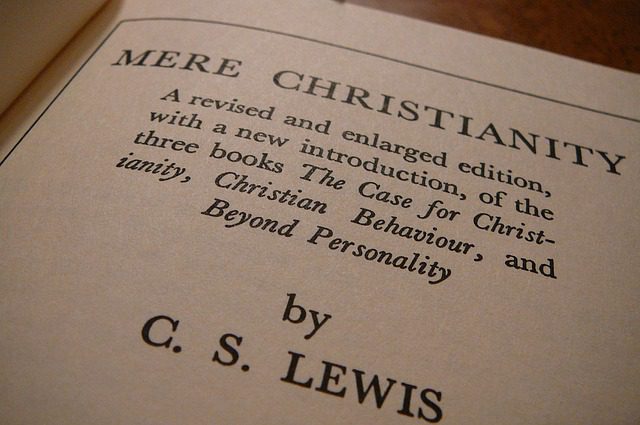
Dave Scott is a “low church” / evangelical / non-denominational Protestant, who is a good friend. We had this casual and enjoyable chat today on my Facebook page. His words will be in blue.
***
We’re saying that grace and faith save and that works are intrinsically part of that faith.
I wouldn’t disagree with that Dave … there is undoubtedly a dynamic between faith and works which self-justifiers on either ‘side’ try to split and then gainsay.
I’ve always taken the Protestant emphasis to be on whether we can earn salvation not whether we are entrusted to maintain, in whatever measure we are able, salvation.
I think a true Protestant view, on that matter, should be expressed in the utmost humility – because of what it is trying to express … and not wielded arrogantly or aggressively.
Someone asked me yesterday about Luther adding “alone” to “faith” in his Bible. I said it’s an overblown issue that I don’t spend time arguing about, so that I didn’t have a paper about it. And I have papers about everything!
Both sides believe that we’re saved by grace alone and that good works are an essential, required part of the Christian life.
Amen to that!
On that basis, there could be these big agreements on justification.
So, despite our differences, why don’t we just go and produce ‘good fruit’?
That would be nice. I’m all for that.
The usual ‘stuff’ . . .Brothers and sisters have lots of disagreements, but they still love each other, don’t they? It’s the denial that one or the other is a brother that causes the biggest problem.
So say you and I went out and did street evangelism. I think we would say basically the same thing at first: the basic gospel message. Then the guy accepts that and asks, “where do I go to church on Sunday?”Now we have a difference.
*
What is important, for me, is that the person found Christ and Him using whatever denomination as a means of His Grace.
Yes; I consider this a pretty good, thoughtful Protestant ecumenical outlook. Basically the “mere Christianity” approach . . .
My son Matthew, e.g., has some great Protestant friends in a family. The father is a Baptist pastor and a Muslim convert got baptized in his church and Matthew went to the service. We rejoice in that. A Muslim became a regenerated Christian. Of course, we believe that happened, whereas the pastor thinks it was just mere symbolism.
They could be in some sense, but for the vast majority of Christians, baptism must come very soon; ASAP, in fact. This is but one example of the issues that immediately come up in a theoretical joint street witnessing scenario. You can just do “mere Christianity”: but we can’t honestly do that, if it goes into a certain depth. We can’t simply ignore sacraments and saints and transubstantiation, etc.
We can do the initial witnessing together, but then it’ll split eventually. It can be friendly but there are still differences to be grappled with.
What do you tell them? “It’s all those who are saved and have committed their lives to Jesus?” And they ask again, “Where do I go to church this Sunday?”
Isn’t asking ‘what is Church?’ a bit like saying ‘what is truth?’ … not saying that it’s not a valid question. Church has many metaphors (Biblical ones) but God’s people are those who follow and obey Him and who sometimes disobey Him and need His faithfulness to pull/shepherd them though.Once one answers “Who is Church?” I think each person can answer where they could go thereafter. I am interested in the sown seed staying planted, that is my first concern. I am Church, you are Church, we are Church if we trust and follow Christ.
Even in Mere Christianity (the book), C. S. Lewis said that the “mere” part was the common hall in the building; then the people went to their individual rooms with their theological distinctives.












